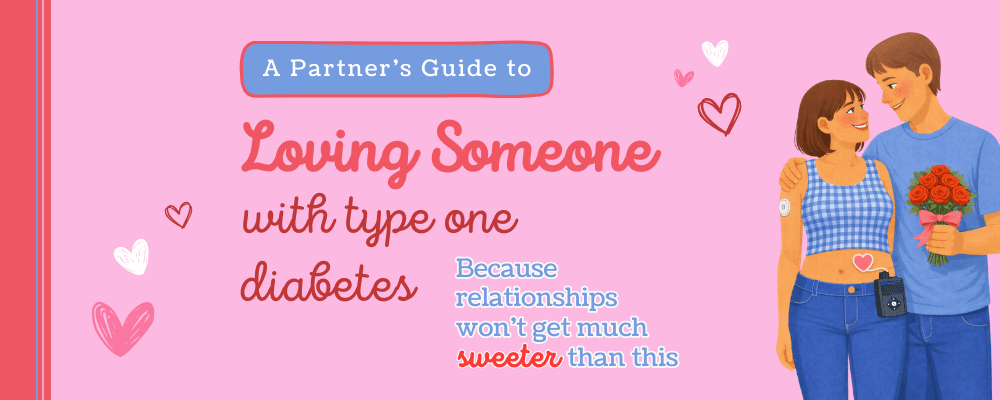Enjoying social situations and holidays while managing diabetes can often be a challenge. This is a reality for millions of individuals living with Type 1 and Type 2 diabetes around the globe. Understanding how to balance blood sugar levels while also enjoying the company of friends, family, and food can feel like walking a tightrope. But with the right guidance and preparation, it is entirely possible to join in with these occasions without compromising your health.
At the Diabetes Research Connection, our mission is to empower those living with diabetes through providing education, resources, and the latest in research findings. In this comprehensive guide, we aim to equip you with practical tips and strategies to confidently navigate social situations and holidays. Remember, having diabetes does not mean you have to miss out on life’s celebrations or compromise your enjoyment.
To explore more resources or engage with a community that truly understands the nuances of living with diabetes, visit the Diabetes Research Connection website. Your journey towards a balanced and fulfilling social life with diabetes starts here.
Understanding Type 1 and Type 2 Diabetes
Before diving into tips for navigating social situations and holidays, let’s first grasp a basic understanding of diabetes, specifically the differences between Type 1 and Type 2. Both types are chronic conditions that affect the way your body regulates blood sugar, or glucose, which is vital for providing energy to your body’s cells.
Type 1 diabetes, often diagnosed in childhood, is an autoimmune condition where the body’s immune system destroys insulin-producing cells in the pancreas. As a result, individuals with Type 1 diabetes need to take insulin regularly to maintain healthy blood glucose levels.
On the other hand, Type 2 diabetes primarily affects adults and is characterized by insulin resistance. In this case, the body still produces insulin, but it either isn’t enough or the body’s cells can’t use it effectively, leading to high blood sugar levels.
Both types impact a person’s lifestyle and can pose challenges in social activities, particularly those involving food and drinks. With effective management, though, individuals with Type 1 or Type 2 diabetes can enjoy a healthy, fulfilling social life.
To gain a deeper understanding of Type 1 and Type 2, their impact on lifestyle, and the latest research around them, we invite you to explore the Diabetes Research Connection website. Remember, knowledge is power, and understanding your condition is the first step in managing it effectively.
Tips for Managing Diabetes in Social Situations
Social situations can be a minefield for people managing diabetes, but being prepared can help you enjoy these occasions with peace of mind. Here are some practical tips:
Plan Ahead: Look at the menu before you go to a restaurant, or ask the host about the planned meal. This can help you adjust your meal plan or insulin regimen accordingly.
Speak Up: Don’t be afraid to express your needs. If you need to eat at a certain time to manage your blood sugar, let your friends or host know.
Carry Necessary Supplies: Always bring your glucose monitoring device, insulin, or other necessary medications. It’s better to be prepared for unexpected fluctuations in blood sugar levels.
Eat and Drink Mindfully: Alcohol and certain foods can affect blood sugar levels. Monitor your intake and make sure to hydrate with water as well.
Stay Active: Incorporate physical activities into your social outings when possible, as exercise can help regulate blood sugar levels.
Educate Others: Help your friends and family understand diabetes better, so they can provide support when necessary.
These are just a few tips to help you navigate social situations with diabetes. Remember, every person’s experience with diabetes is unique. You know your body best, and with time, you’ll learn how to balance diabetes management and social life effectively.
We encourage you to share these tips with friends and family. The more they understand about your condition, the more supportive they can be. Knowledge sharing and mutual understanding can go a long way in fostering supportive relationships for those managing diabetes.
Navigating Holidays and Special Occasions with Diabetes
Holidays and special occasions can be a whirlwind of delicious food, tempting desserts, and celebratory drinks. However, managing diabetes amidst such a spread doesn’t mean you have to miss out on the festivities. Here are some strategies:
Pre-Event Planning: If you’re attending a party or a holiday meal, try to have a small, balanced snack beforehand to prevent overeating. Also, plan your day to include more physical activity if you anticipate consuming more carbohydrates.
Portion Control: Enjoy your favorite festive foods in moderation. Remember, it’s not about completely avoiding certain foods but learning to balance your plate and your blood sugar levels.
Offer to Bring a Dish: If you’re going to a potluck, bring a dish you know fits well with your meal plan. This way, you’ll have at least one safe option.
Stay Hydrated: Drinking plenty of water is always a good idea, especially during celebrations. If you choose to consume alcohol, remember to do so responsibly, as it can affect your blood sugar levels.
Check Blood Sugar Regularly: Changes in your routine can affect blood sugar levels, so be sure to check more frequently during these times.
Remember, the aim is to enjoy the holiday season without compromising your health. It might take some time and practice, but eventually, you will find a balance that works best for you.
Your experiences and tips could benefit others dealing with similar situations. Share your holiday diabetes management tips on the Diabetes Research Connection’s social media channels. Together, we can support each other in managing diabetes effectively during festive times. Visit the Diabetes Research Connection website for more information and to join our supportive community.


Reducing Stress and Enjoying Social Life with Diabetes
Living with diabetes doesn’t mean you have to forego an active social life. In fact, maintaining social connections and enjoying leisure activities can play an essential role in overall well-being. Here are some strategies to help you reduce stress and enjoy your social life:
Mental Preparation: Anticipate potential challenges and prepare solutions beforehand. This will not only make you feel more in control but also reduce anxiety around social situations.
Embrace Open Conversations: Don’t hesitate to talk about your condition with your friends and family. The more they understand your needs, the more supportive they can be.
Practice Self-Care: Regular exercise, adequate sleep, and a balanced diet can help manage your blood sugar levels and reduce stress. Remember to make time for activities you enjoy and that relax you.
Seek Support: Whether from a trusted friend, a family member, or a support group like the community on the Diabetes Research Connection website, don’t hesitate to seek support when you need it.
Remember, your social life is a crucial part of your identity and overall quality of life. A diabetes diagnosis doesn’t change that. It’s important to continue doing what you enjoy, while also taking care of your health.
Your stories of managing social experiences and stress with diabetes can inspire others. We invite you to share your personal stories on the Diabetes Research Connection platform. In doing so, you contribute to a network of support and knowledge sharing that can benefit many.

Supporting Research and Advocacy Efforts
As we navigate the journey of managing diabetes, it’s crucial to remember that we are part of a larger community working tirelessly towards better treatment options and, ultimately, a cure. The Diabetes Research Connection plays a key role in this mission by supporting novel, peer-reviewed research and advocating for individuals living with diabetes.
Your support can make a significant difference. Here’s how:
Donate: Your generous donations to the Diabetes Research Connection help fund cutting-edge research, aiming to improve the lives of those living with diabetes.
Spread Awareness: Use your social platforms to share information about diabetes and encourage others to donate. The more people know, the more we can collectively contribute to the cause.
Engage with Research: Stay informed about the latest research and developments in diabetes management. The DRC website offers a wealth of information to keep you up-to-date.
Join the Community: The Diabetes Research Connection offers a supportive community for people living with diabetes. Share your experiences, learn from others, and know that you are not alone in this journey.
Your support and advocacy can help change lives. We invite you to make a donation to the Diabetes Research Connection and join our efforts to create a better future for all individuals living with diabetes. Visit the DRC website today to make your contribution and learn more about our mission and current research initiatives. Your involvement can make a world of difference.
Moving Forward
Navigating social situations and holidays while managing diabetes can be challenging, but with preparation, understanding, and the right strategies, it’s completely achievable. Remember, having diabetes does not mean you have to sideline yourself from celebrations or compromise on the enjoyment of life’s special moments.
We’ve walked through understanding Type 1 and Type 2 diabetes, tips for managing social situations and holidays, strategies to reduce stress, and how you can contribute to the broader diabetes community. But this is just the tip of the iceberg. There’s so much more information, support, and resources available on the Diabetes Research Connection website to help you live a fulfilling life with diabetes.
The importance of community cannot be overstated. We invite you to join the DRC community. engage with others who are walking the same path, and share your experiences and insights.
And lastly, consider making a donation to further diabetes research. Your generous contribution supports groundbreaking research that could change the lives of millions of people living with the condition. Visit the Diabetes Research Connection website today to contribute, and let’s work together towards a future free from the limitations of diabetes.




